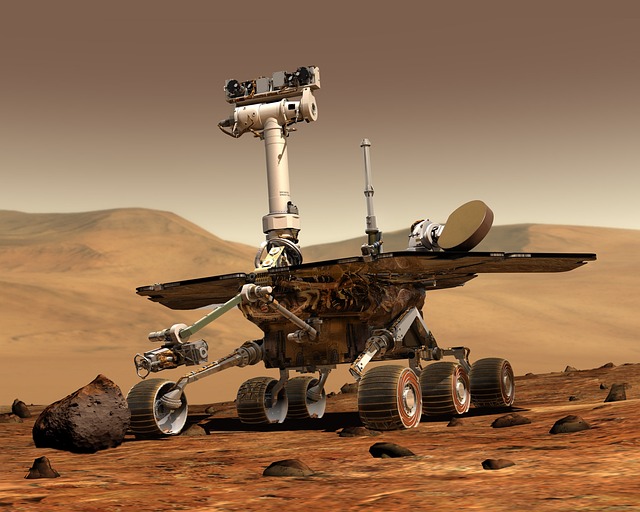Biotechnology Breakthroughs in Disease Treatment

Introduction:
Can you imagine a world where diseases are conquered with the help of innovative technologies? Thanks to groundbreaking advancements in biotechnology, this dream is becoming a reality. From revolutionizing treatment strategies to enhancing patient outcomes, biotechnology is paving the way for remarkable breakthroughs in disease treatment. In this article, we will explore some of the most awe-inspiring developments in this field.
Innovative Therapies:
One of the most significant biotechnology breakthroughs is the advent of gene therapy. By targeting and modifying genes responsible for diseases, scientists can potentially cure genetic disorders that were once considered untreatable. This exciting approach offers hope to individuals with conditions like cystic fibrosis and muscular dystrophy, empowering them to live healthier lives.

Another promising area is immunotherapy, which harnesses the power of the immune system to fight diseases such as cancer. Through techniques like CAR-T cell therapy, researchers can reprogram a patient’s own immune cells to recognize and attack cancer cells selectively. This personalized approach holds immense potential for transforming cancer treatment and improving survival rates.
Precision Medicine:
Biotechnology has also paved the way for precision medicine, tailoring treatments based on an individual’s unique genetic makeup. By analyzing a person’s genetic information, doctors can determine the most effective medications and dosages, minimizing side effects and maximizing therapeutic benefits. This targeted approach not only enhances treatment outcomes but also reduces healthcare costs by avoiding unnecessary interventions.
Diagnostic Advancements:
Early detection is crucial for successful disease management. Biotechnology has given rise to cutting-edge diagnostic tools that enable earlier and more accurate disease detection. For instance, liquid biopsies allow the detection of cancer-related genetic mutations through a simple blood test, replacing the need for invasive procedures. Similarly, advanced imaging techniques and biomarker assays provide insights into diseases at a molecular level, facilitating timely interventions and improved patient care.
Conclusion:
The realm of biotechnology continues to push the boundaries of disease treatment. Gene therapy, immunotherapy, precision medicine, and advanced diagnostics are just a few examples of the remarkable breakthroughs this field has witnessed. As researchers and scientists tirelessly work towards unraveling the complexities of diseases, we can look forward to a future where life-threatening conditions are conquered, and patients can lead healthier, happier lives.
Remember, the possibilities offered by biotechnology are boundless. With each new discovery, we move one step closer to conquering some of the most challenging diseases known to humanity. So, brace yourself for a future filled with awe-inspiring advancements in disease treatment, all thanks to the incredible world of biotechnology.
Revolutionizing Healthcare: Biotechnology Unleashes Cutting-Edge Breakthroughs in Disease Treatment
Imagine a world where diseases that once seemed incurable become mere obstacles on the path to better health. Thanks to groundbreaking advancements in biotechnology, this vision is becoming a reality. Biotechnology, with its ingenious blend of biology and technology, holds the key to unlocking cutting-edge breakthroughs in disease treatment, shaping the future of healthcare.
At the forefront of this revolution is precision medicine, a game-changer in the field of disease treatment. By analyzing an individual’s unique genetic makeup, doctors can now tailor treatments specifically to their needs. No longer do patients have to rely on one-size-fits-all approaches. This personalized approach empowers medical professionals to target diseases at their root, significantly improving patient outcomes.
Biotechnology has also paved the way for innovative therapies such as gene editing. Imagine being able to modify faulty genes responsible for hereditary disorders or even eradicate genetic diseases altogether. With tools like CRISPR-Cas9, scientists are now able to precisely edit genes, opening up endless possibilities for treating previously untreatable conditions.
Moreover, biotechnology has revolutionized diagnostics, enabling early detection of diseases. Advanced techniques like liquid biopsies allow for non-invasive testing, aiding in the detection of cancer and other diseases at their earliest stages. The result? Timely interventions that can save lives and improve long-term prognosis.
Another realm where biotechnology shines is regenerative medicine. Stem cell therapies hold tremendous potential in repairing damaged tissues and organs. Through the use of stem cells, scientists are exploring avenues to regenerate vital body parts, offering hope to those suffering from debilitating conditions like spinal cord injuries or organ failure.
Furthermore, biotechnology has unleashed the power of immunotherapy, harnessing the body’s immune system to fight diseases like cancer. Cutting-edge treatments, such as chimeric antigen receptor (CAR) T-cell therapy, reprogram the patient’s immune cells to recognize and destroy cancer cells. This groundbreaking approach not only enhances treatment effectiveness but also minimizes side effects associated with traditional therapies like chemotherapy.
Unlocking the Future of Medicine: Biotechnology’s Promising Advances in Disease Treatment
Imagine a world where diseases that were once considered incurable become a thing of the past. A world where cutting-edge scientific breakthroughs pave the way for revolutionary treatments and therapies. This is the future of medicine, powered by the incredible advancements in biotechnology.
Biotechnology, the fusion of biology and technology, holds immense potential in transforming the landscape of healthcare. It encompasses a wide range of tools and techniques that harness the power of living organisms to develop innovative solutions for disease treatment. From gene editing to personalized medicine, the possibilities are awe-inspiring.
One of the most promising areas of biotechnology lies in gene therapy. By manipulating an individual’s genes, scientists can correct genetic defects that cause diseases at their root. This groundbreaking approach has already shown remarkable success in treating rare genetic disorders such as spinal muscular atrophy and inherited retinal diseases. As researchers delve deeper into understanding the human genome, the potential applications of gene therapy expand, offering hope for previously untreatable conditions.
Another exciting avenue in biotechnology is the development of targeted therapies. Traditional treatments often have broad effects on the body, leading to unwanted side effects. However, with targeted therapies, medications can be designed to specifically target diseased cells while sparing healthy ones. This precision approach not only enhances efficacy but also minimizes adverse reactions. As a result, patients can receive more effective and personalized treatments, improving their quality of life.
Furthermore, biotechnology plays a pivotal role in advancing diagnostics. Innovative techniques such as liquid biopsies enable the detection of cancer and other diseases through simple blood tests. These non-invasive methods facilitate early diagnosis, increasing the chances of successful treatment. Additionally, the integration of artificial intelligence and machine learning in analyzing vast amounts of medical data holds great promise for accurate diagnoses and tailored treatment plans.

Biotechnology is revolutionizing the field of medicine and opening up a world of possibilities in disease treatment. From gene therapy to targeted therapies and advanced diagnostics, these remarkable advancements bring us closer to a future where previously incurable diseases are eradicated or effectively managed. As scientists and researchers continue to unlock the full potential of biotechnology, the future of medicine shines brighter than ever before.
From Lab to Lifesaver: Biotechnology Innovations Transform Disease Treatment Paradigms
Have you ever wondered how diseases are treated? In the fascinating realm of biotechnology, groundbreaking innovations have been revolutionizing the way we approach disease treatment. This article delves into the incredible journey from laboratory discoveries to life-saving interventions, showcasing how biotechnology is transforming treatment paradigms.

At the heart of this transformative process lies the marriage between biology and technology. Biotechnology harnesses scientific knowledge and tools to develop novel solutions for combating diseases. Researchers and scientists work tirelessly in laboratories, driven by a passion to improve human health and save lives.
One remarkable advancement in biotechnology is the development of targeted therapies. Traditional treatments often employ a one-size-fits-all approach, but targeted therapies take a more personalized route. By analyzing an individual’s genetic makeup or specific biomarkers, scientists can tailor treatments to target the root cause of a disease at a molecular level. This precision medicine not only enhances treatment effectiveness but also minimizes side effects, leading to better patient outcomes.
Another awe-inspiring innovation is the field of regenerative medicine. Imagine a world where damaged tissues and organs can be regenerated, eliminating the need for transplants. Through the use of stem cells and tissue engineering, scientists are making significant strides towards achieving this vision. They are unlocking the body’s innate healing potential, allowing for the repair and regeneration of damaged or diseased tissues. This breakthrough has the potential to revolutionize the treatment of conditions such as spinal cord injuries, heart diseases, and even organ failure.
Furthermore, biotechnology is paving the way for revolutionary diagnostic tools. Rapid advancements in gene sequencing and molecular imaging techniques have enabled the early detection of diseases with unprecedented accuracy. Timely diagnosis empowers healthcare professionals to intervene proactively, improving treatment outcomes and potentially saving lives. These cutting-edge diagnostics are like a compass, guiding doctors towards the most effective treatment paths.

Biotechnology innovations are transforming disease treatment paradigms in ways that were once unimaginable. Targeted therapies, regenerative medicine, and advanced diagnostics are just a few examples of the incredible progress being made. As we continue to unravel the mysteries of life at a molecular level, the possibilities for improving human health are boundless. The journey from the laboratory to becoming lifesaving interventions proves that biotechnology is a powerful force driving us towards a healthier future.
Hope Restored: Biotech Breakthroughs Offer New Possibilities for Treating Incurable Diseases

In the realm of medical advancements, hope shines brightly as biotech breakthroughs emerge, promising new avenues of treatment for once-incurable diseases. The relentless pursuit of scientific innovation has opened up unprecedented opportunities to combat these formidable adversaries that have plagued humanity for centuries. Embarking on a journey that transcends conventional boundaries, biotechnology pioneers are rewriting the rules of medicine, ushering in a new era of healing and restoration.
Imagine a world where diseases once deemed incurable are no longer a death sentence but instead become manageable conditions. Thanks to cutting-edge research and groundbreaking discoveries, this vision is becoming a reality. Biotechnology, with its multidisciplinary approach encompassing genetics, genomics, molecular biology, and bioengineering, has provided a powerful arsenal of tools to tackle diseases at their root causes.
One of the most remarkable achievements of biotech breakthroughs resides in the field of gene therapy. With the ability to modify or replace faulty genes, scientists can now target genetic disorders directly, offering newfound hope to patients suffering from conditions once thought untreatable. By utilizing viral vectors or specialized nanoparticles to deliver therapeutic genes into the body, researchers can potentially cure diseases such as cystic fibrosis, muscular dystrophy, and sickle cell anemia.
The potential of biotechnology extends far beyond gene therapy alone. Another revolutionary area of research lies in regenerative medicine, which focuses on repairing and replacing damaged tissues or organs. Stem cells, the building blocks of life, hold immense promise in regenerating damaged tissues and restoring lost function. Through innovative techniques like induced pluripotent stem cells (iPSCs) and tissue engineering, scientists are working towards regenerating spinal cord injuries, regrowing damaged heart tissue, and even creating lab-grown organs for transplantation.
Furthermore, the field of immunotherapy has seen remarkable progress, revolutionizing cancer treatment. By harnessing the power of the immune system, therapies such as CAR-T cell therapy have achieved astonishing results in combating certain types of leukemia and lymphoma. Immune checkpoint inhibitors, another groundbreaking approach, unleash the body’s immune response to fight against various cancers, offering renewed hope and extended survival rates for patients.




